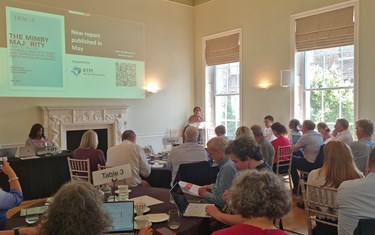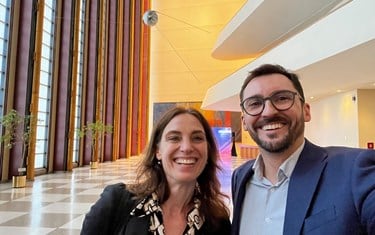Kim Langford-Tejrar MRTPI, LLB (Hons) BSc (Hons) PGCERT (Legal Practice) hosts the 'Giving Evidence at Public Inquiries' online CPD masterclass.
 Sustainability in planning means macro and micro positive outcomes for society, the environment and the economy. Locally, it means creating a high quality of life for all by meeting the needs of the community and reducing inequality. The roles of sustainability are inextricably linked and thus delivering sustainability requires a holistic approach which harnesses the knowledge and expertise of a range of built and natural environment specialists. This is important to all aspects of planning from engagement with stakeholders, high-quality research, well-evidenced law and policy, well-designed development projects and good decision making.
Sustainability in planning means macro and micro positive outcomes for society, the environment and the economy. Locally, it means creating a high quality of life for all by meeting the needs of the community and reducing inequality. The roles of sustainability are inextricably linked and thus delivering sustainability requires a holistic approach which harnesses the knowledge and expertise of a range of built and natural environment specialists. This is important to all aspects of planning from engagement with stakeholders, high-quality research, well-evidenced law and policy, well-designed development projects and good decision making.
For this reason, a key skill required for a career in planning, and indeed for Royal Town Planning Institute (RTPI) Chartership, is to effectively engage with other built environment professionals to move projects forward. Planning professionals are particularly adept at working together. The Case Studies for the RTPI Awards for Planning Excellence demonstrate how outstanding development schemes rely on input from a diverse network of experts, working towards the same sustainable dream.
However, successful teamwork with others (who may have overlapping interests but different knowledge, experience and priorities) is not without its challenges.
Simply identifying the stakeholders or ensuring the correct consultations are made can require some attention. Once I heard an Arboricultural Officer ask a junior Planning Officer, “You didn’t notice the massive tree in the middle of the site?!”. This is the reality of planning, and I’m sure fellow professionals could easily contribute to an ‘Overheard in the Planning Office’ - blog.
For the more complex scheme, the team co-ordinator (often the planner or architect) relies on comprehensive, timely and robust input from their specialist expert colleagues. Difficult discussions around timescales, detailed consultation responses, or required mitigations often take place within the team. These must be carefully navigated. Indeed, emotional intelligence in the workplace can be more important than technical knowledge and IQ (Golman, 2005). You can cause problems for the project if you step on the toes of others by telling an expert how to do their job and it’s also a career limiting mistake for you!
The risk here, if you stray from your lane or fail to take the advice of other professionals, is not only that teammates will feel alienated, under-valued or frustrated. The risk is not even limited to a compromised, unsustainable outcome. The very definition of an Expert Witness is that you must be an Expert in the subject you are giving evidence about. If you overstep, you are in danger of compromising the evidence of those who know better. Even more importantly, you would be acting outside of your role, in breach of the rules for expert witnesses and your main duty to the inquiry. It may sound trite, but ‘teamwork makes the dream work’.
Join us for the Giving Evidence at Public Inquiries online CPD masterclass I will lead that will help you prepare for these specific challenges. Please search for the upcoming masterclass date in the Online CPD Masterclass Calendar. (The RTPI Training Team advises you to book your ticket for this online masterclass two months in advance due to its popularity).
For related face2face regional events like Mock Public Inquires, search for RTPI Events Calendar or email: [email protected].
RTPI publication on this topic: Planners as Expert Witnesses - How planners can improve their effectiveness at planning inquiries and hearings.


